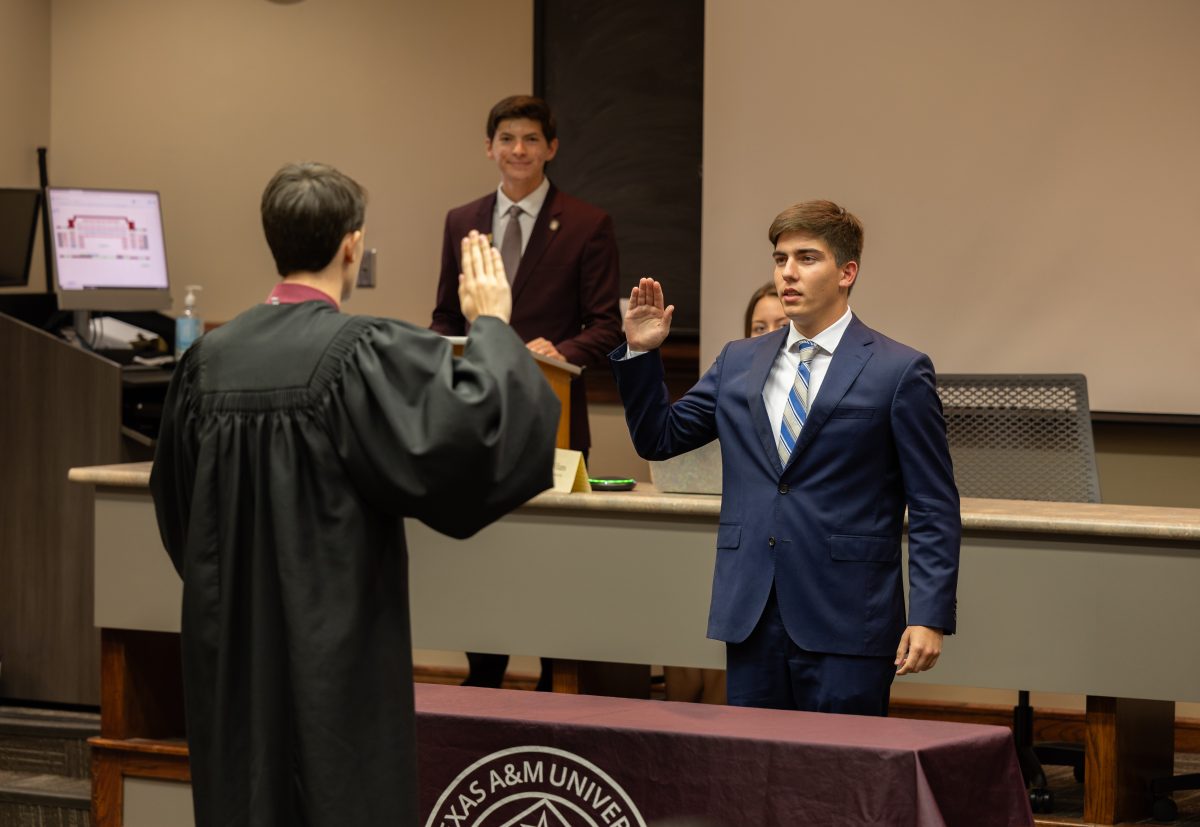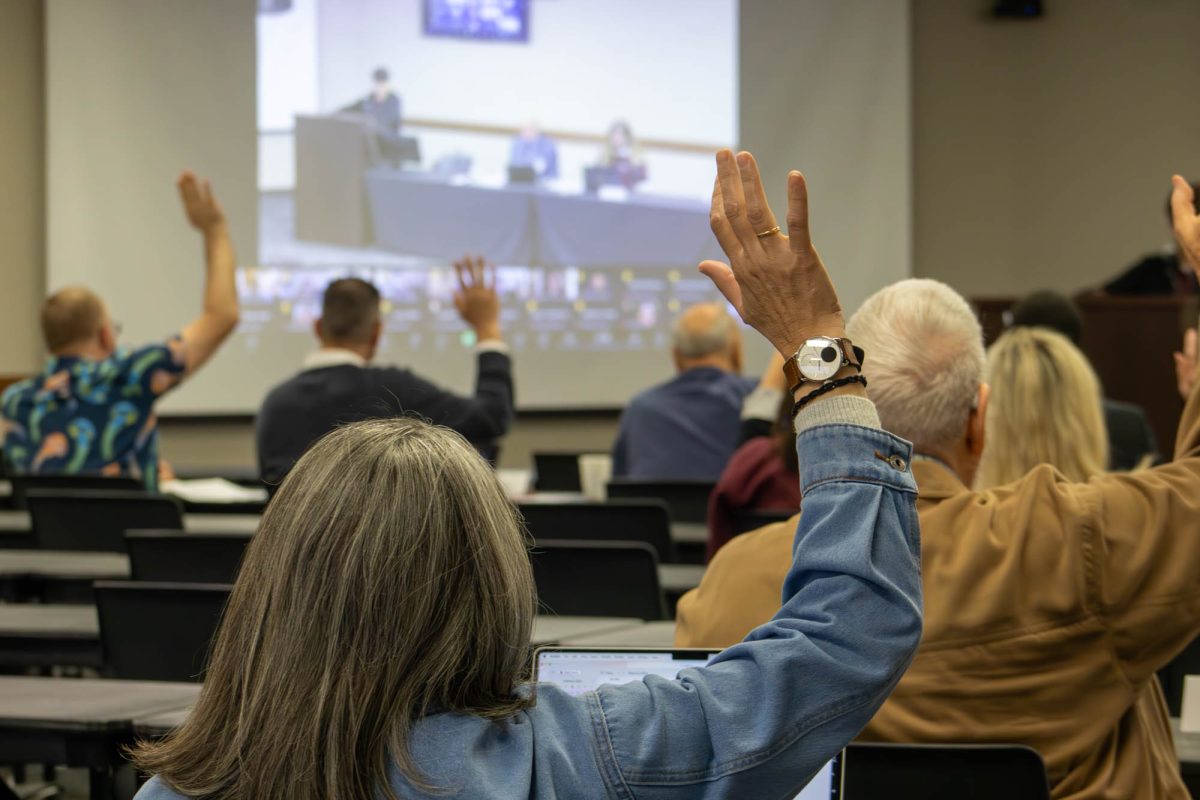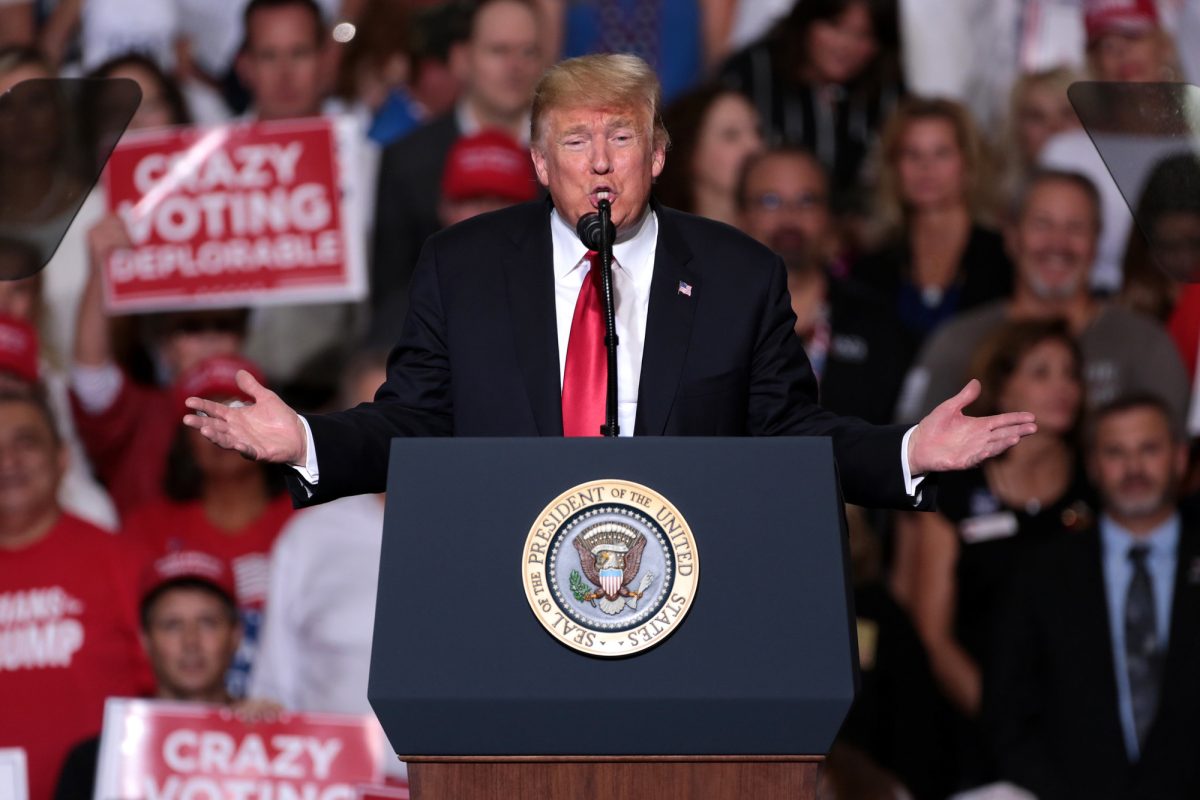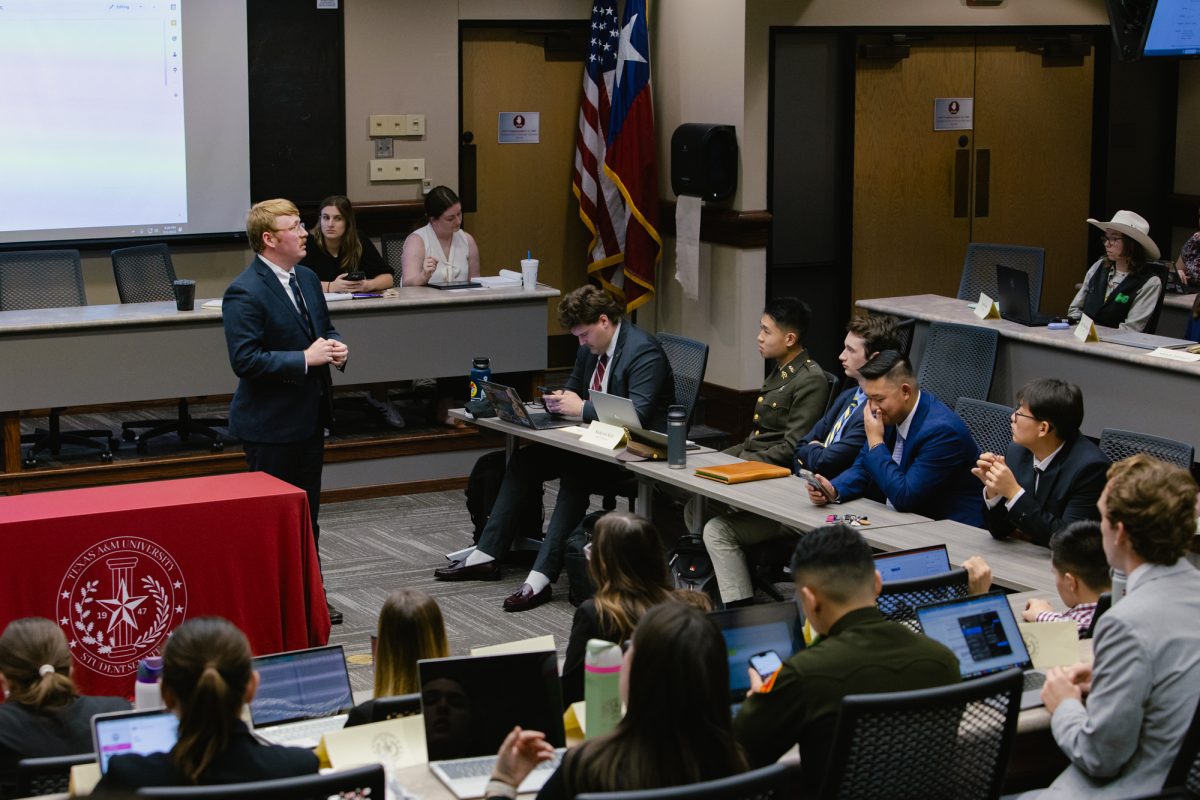On Wednesday, Dec. 6, Texas A&M’s Student Body President, or SBP, Andrew Applewhite vetoed the Student Body Vice President Act, or SBVP Act, which passed 32-4 at the last Student Senate meeting of the semester on Wednesday, Nov. 29.
The bill sought to make the SBVP an elected position in the spring student body elections by having the president and vice president run on a joint ticket. It would have gone into effect on Jan. 1, 2024.
Applewhite said he vetoed the legislation due to its timing in a Dec. 6 statement.
“ … We have less than one month before this massive overhaul would take place,” Applewhite said in the statement. “The veto would ensure that students have enough time to understand these changes before they run for elected office, as opposed to one month.”
The Student Government Association, or SGA’s, purpose is to serve all students, not just those within student government, Applewhite said.
“I believe in order to [serve all students] we must do our best to keep everyone on an equal playing field,” Applewhite said.
Applewhite discussed his decision with members of the Executive Cabinet, including Executive Vice President Grayson Sims. Applewhite said he has full faith in the Student Senate to figure out this legislative issue.
“This is an exciting prospect for elections at [A&M], but one I believe will best be pursued in the coming months,” Applewhite said.
A member of SGA speaking on the condition of anonymity and using the alias “Sam” said when the legislation was first introduced, there were conversations with Applewhite about the bill where he voiced concerns it would be too much change for the executive branch.
“[Applewhite] said an under-experienced SGA person could get the office, and that there were too many uncertainties,” Sam said. “I also heard the argument that if it isn’t broken, why fix it — and he even tried convincing me to disapprove of it. However, these arguments could be valid for the position of SBP as well.”
The SBVP Act would give more power to the executive branch rather than take any away, Sam said. It would also give students more power, as it would allow them to vote on who will serve as the second-highest-ranking executive branch official, they said.
“This is not fixing something that isn’t broken, and the vice president role isn’t broken,” Sam said. “It would become stronger.”
Sam said Applewhite has yet to have a conversation with a single author of the bill voicing his concerns.
“He stopped Jade Williams, the rules and regulations chair and an author of the piece, from presenting at an Executive Branch meeting about the piece, telling her she can no longer be present at the meeting,” Sam said. “We speculate that there is some other reason for him not liking the piece, and the only certain thing we can think of is the fact his new chief of staff, Cade Coppinger, is running for the SBP position this next election cycle.”
At the last meeting, Applewhite, with the help of several SGA senators and chairs, attempted to stage a quorum bust, Sam said, essentially hoping to delay the legislation by making it so the senate could not proceed due to a lack of attendance — or “a tactical walkout,” as described by Sam.
“We knew [this quorum bust] was coming before the meeting, as I heard from many sources within the executive branch that it was being planned and that they would try to filibuster,” Sam said. “You could see the specific people who tried to waste the most time by asking questions and speaking in full rounds of debate at every chance they got within the meeting. You could also see who called for a quorum trying to see how many people they needed to get out of the room.”
However, the quorum bust was unsuccessful, Sam said.
“Applewhite even tried to employ someone to table the piece,” Sam said. “Applewhite these days seems to be more involved with the senate than his own branch.”
In a statement sent out before the Dec. 6 veto, Williams, a main author of the legislation, said the Rules and Regulations Committee reviewed the act over multiple hours and days to make sure it was implemented with utmost care.
“In preparation for this act to go to the senate, there were several meetings with the election commission, executive branch top staff and advisors to make sure that the SBVP Act is as efficient and effective as possible,” Williams said. “Though some parties believe this change has come too quickly, we believe that the perfect amount of care and attention has been given to this piece and are excited to amplify student voices in who represents them.”
The role of the SBVP goes beyond shadowing the SBP, Williams said.
“The SBVP’s role is up to the discretion of the SBP as they organize their cabinet,” Williams said. “As far as the intent here, it is to make another electable position that the student body has a larger say in who represents them.”
Off-campus senator Nick Hines, who helped introduce the legislation, said he hoped to elevate student voices with the act.
“Any opportunity to elevate student voices is one that we should take seriously as elected representatives of the student body, and that is what this is about,” Hines said.
Speaker of the Senate Marcus Glass declined to comment, as did Williams, following the veto.










